One of the few shorts that caught our attention in the theatrically released 8-film anthology ‘Shuruaat Ka Interval’ was ‘The Last Audition‘ – a bittersweet little story about the life about a struggling actor (Anil Mange) in Mumbai. It was a crowd favourite, and very well received, and its director, 28-year old Krishan Hooda, is now at the helm of a biopic that has been making some news.
‘Rebellious Flower’, a film on the life and times of Osho Rajneesh, screened as the Closing Film at the Salento International Film Festival held in Tricase, Italy. It also won the Special Mention Jury award and received thunderous applause at the Piazza Pisanelli.
Here, ABHISHEK GAUTAM speaks to the director about his film, indie career, background and plans ahead.
How did film making happen?
A: I was never really very interested in films. Even now, it isn’t that much. It happened by fluke. I was into athletics in college. At the time, I suffered a ligament tear. I wondered what do I do. There was a personality contest. I took part in that. Won that. So everyone then pushed me to act. I got into acting. I played a few small roles in a few plays at Prithvi. Then I thought to myself, this is not what I want to do. I wanted a bigger role. But I thought to myself, what is it that I know? I didn’t know anything apart from athletics. Eventually, I wrote a play. I directed it and played the lead as well. After that I was done with acting. I can’t do it anymore. People also appreciated my writing more than my acting. So I decided to shift. I wrote a bit, made a few short films, assisted Rajen sir (Rajen Kothari), then I realized this is something I love. An accidental love of sorts.
You never did a course or officially learned the craft. What impact did that have?
A: It was actually beneficial for me. When you are from a school, you know what you’ve learnt. If nothing else you at least know the names of things. However, for a person who enters a field in which he has no background and no links, it seems difficult, but there is this insecurity that if I want to do something I need to learn. There is no security blanket. You meet anyone and you get insecure. They name 4 things and you go, “fuck, what will I reply to this?” So there is this pressure to learn everything. Be it from the internet or from people. Whatever resource is available to you. That is an advantage. When you are from a film school – and this is my personal belief – you feel you know everything. You know filmmaking. So you don’t open up yourself. You don’t explore as much. You focus on the technical part. But if you are from a different background, you tend to focus on your stories because that is all you want to do. To tell different, good stories. About the events that have happened with you. This, I found better and to my advantage.
There is a general perception of OSHO – the legend, popularity, established perspectives. Did that affect you writing the story?
A: I did not write the script. I received the bound script . My inputs were just some tweaks, especially for some dialogues. The film is quite verbose. I was not very happy with the story because it did not fall in a proper narrative structure. It does not grow in a lot of places. It stagnates at times. But then Swamiji (writer/producer) told me that this is based on someones life. These are real incidents. It is a real life, with real phases. So,we want to showcase it just the way it is.
Sounds like a constraint on handling a subject like OSHO – considering his prolific following.
A: Not really. The story is based between 1932 -52. In that, there was no such major event which was related to the OSHO we know today.
You have directed a full-length feature film at a young age after just one short film (The Last Audition). But you made this after already experiencing life as a director. What was the difference?
A: The biggest difference is that you get confidence. I believe film making is like a race. When you are at the start of the race, even if you are a champion, whatever your background, there is always the scope of someone being better than you at that moment. So whenever I start a film I always have this insecurity. I am never 100% sure. But in spite of that, people like my work. This insecurity always helps. If anyone gives me genuine critical feedback, then I would work on it. Not every random piece of advice, but genuine well-informed opinions. So the insecurity is always there, but the experience gives you the belief that you can handle it. You can control the pressure. Some factors are never in your hands, but you find the temperament to deal with them, to face them head on. You can focus on the critical aspects better.
Does the insecurity peak during making the film or while releasing it?
A: A lot more on the release. One reason is that I have never gone through this process of releasing a film. People have many expectations – the people who I have worked with or the ones I am working with now. I might have conviction that I like a particular thing. But if I have to explain this to people, then it is my failure as a director. That scope is there during making a film, but not during release. You can work on feedback while creating, but not later. I can’t explain my point of view AFTER making things. There is no purpose in making that film then.
Two feature films already at 28. How is this primarily indie journey been?
A: It wasn’t really difficult for me. So far, I have never really found anything to be a struggle. Don’t know about the future. That probably could be due to my athletics background. I used to run marathons. During training I would run continuously for five hours. So that patience, discipline and preparation has become a part of me, and has been embedded into my film making too. I write at a stretch for 5-6 hours. A lot of times people ask me, how do you get a producer? Then I realize they just wanted to pitch a story, or a synopsis and outline. I want to pitch the same film on the basis of a bound script. Plus I realize it is crucial to have a team. If I can give everything prepared to a producer, then he will work with me. Plus, I will do it in his budget. The producer might not know a DOP, sound recorder, a distributor etc.But if I can provide everything to him, he will work with me. Why not?
Budget is also a big factor. I have seen people who pitch a story and then straight ask for 5 crores. In my case I know the cost for lights, equipment, crew. I do my own budgeting. Imagine if I meet a producer who has 50 lakhs, and I go and pitch to him a project of 1 crore. If my film can be made in 40 lakhs and I still ask for 1cr, then it is a loss for me. My film will not get made. He will look for someone else. So it is also important to know what the range of your producer is in context of the range of your film.
Does this not divert focus from direction?
A: It does but we don’t work with large crews. And I believe that if the film doesn’t need it, you shouldn’t. So It does take away focus but if you are passionate and you want to make a film, you have to be a bit of an all-rounder and put in that extra effort.
Both your feature films are based on real incidents. Is that a conscious trend?
A: Not exactly. I have a few other fiction scripts, but somewhere they have grown out of real events. I am very afraid of getting inspired by a film or a story and making a film on that. I feel it has already been done. So why repeat it? If I have to put in the effort, why not tell a new story? If the audience wants to see an existing story, they will watch the original. They don’t need the remake. That’s why I use real incidents. Maybe my life is that interesting. I have travelled a lot. My father was in the army. So we stayed in many different cities. I have seen different perspectives on life. Secondly, I have been a very confused person and that is the best thing about me. Confusion makes people try many things. Give up many things. But you only give up when there is nothing left to do.
In this confusion, how do you convince others? How did you convince your army father for a choice in films?
A: It was a sensible choice. I have done many things. I was a national level swimmer, a national level athlete, I used to write poems, I even worked in a call centre in night shifts. I thought I am not an owl that I work through the night. I would feel sleepy in the morning, but there would be too much light everywhere. I started feeling like I was living on a separate planet. I have patience and I don’t have patience. When it comes to doing something worthwhile, I have a lot of patience. When it comes to nonsense, I can’t accept it. I get out of the zone quickly.
The night schedules stays the same in films, though.
A: But I enjoy that. Like while running, there is this process when you are overtaking someone. That time flies. Similarly before making a film I keep thinking about it. That attracts me. How will the frame be? How will it be while editing? How will it look after grading? So watching something at so many different stages is very interesting.
How does one sustain this level of involvement while working on a biopic of a person you may or may not believe in?
A: I am not really a follower of OSHO but from whatever I researched about him, I found some things very interesting. Maybe I was detached enough to understand what it was about. But there was an advantage while shooting. It was a period film. Life was not that quick back then. Whatever films I had made till then were fast-moving films, in the sense the camera keeps moving with the characters. In this, everything was static. If I used a steadycam or jib in this film, it wouldn’t work. It would get the audience out of that atmosphere instantly. So I got the chance to work on a new treatment, a new visual language. I got to explore something that was not me, and that was fun to do.
Your producer is a follower of OSHO – did that restrict you?
A: That was not at all a problem. Every story will have a person attached who knows that story very well. I am a Haryanvi. I know Haryana very well, from the people, to their attire and behavior and gait. The advantage was that Swamiji has lived with OSHO. So I got to know and use a lot of things through his first hand experience. For example: there is this shot in the film where two characters walk away from each other. Master and disciple separately. It is a really wide shot. I would never have done this if I had not asked Swamiji that day about what Zen is. He was trying to explain Zen sayings to me for sometime. He told me that it is when nature is bigger than man. So this one line became the reason for this shot. I thought let’s utilize this landscape. There were a lot of things which he said, which unknowingly got incorporated in a physical way into the film.
Still, don’t you lose objectivity being so close to the topic?
A: The initial script had too many dialogues. From the first minute, there were dialogues. That wasn’t working for me. I did not feel there was any need for dialogues there. So now, there are no dialogues for the first 7-8 minutes. So, as you can see, he accepted my reasoning and for many things, he provided valuable pointers which I accepted and used. He gave me the freedom to make my film. I eventually made it the way I wanted to.
(Rebellious Flower, the film inspired by the life of Osho Rajneesh, will release in Indian cinemas on January 15, 2016)


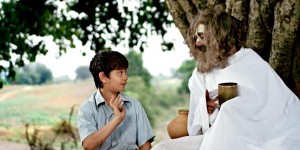
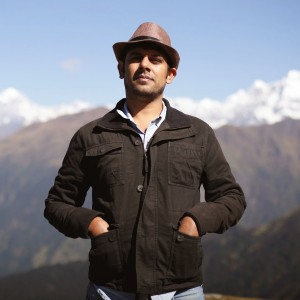
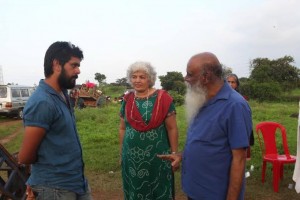

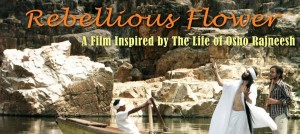

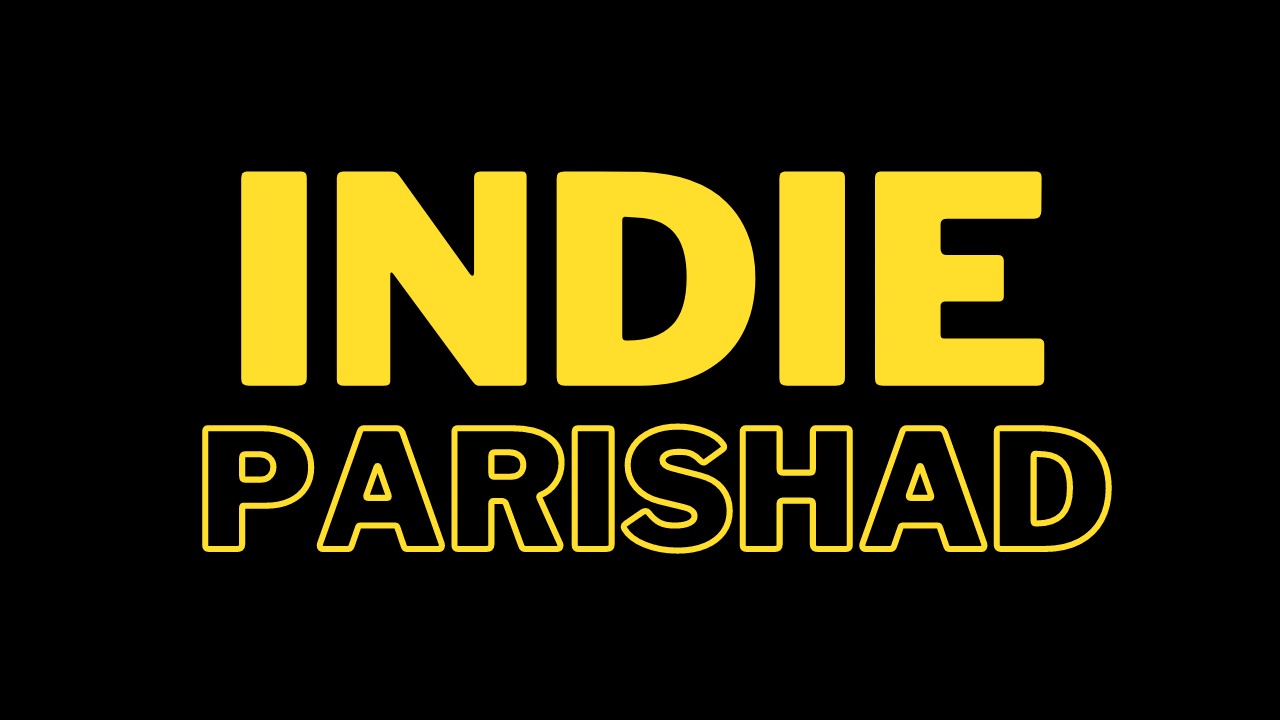
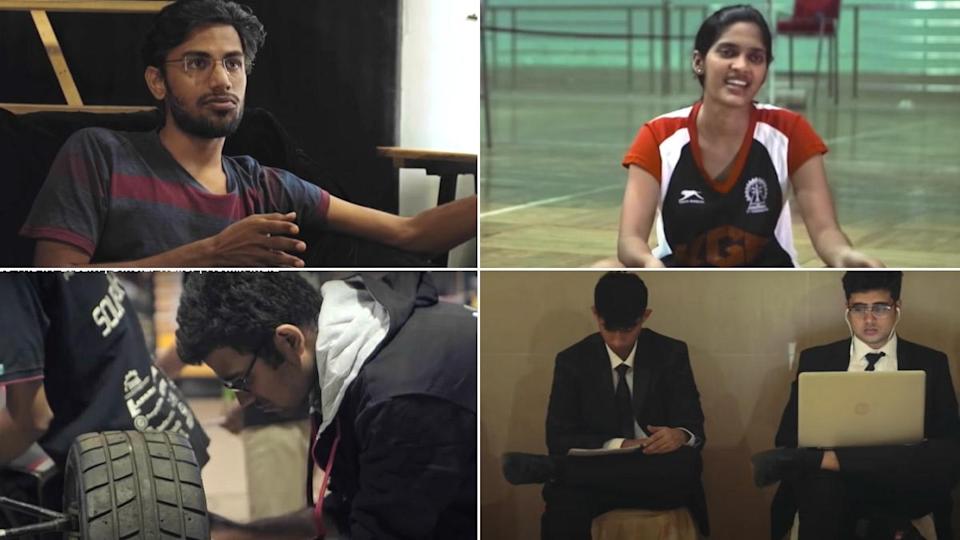
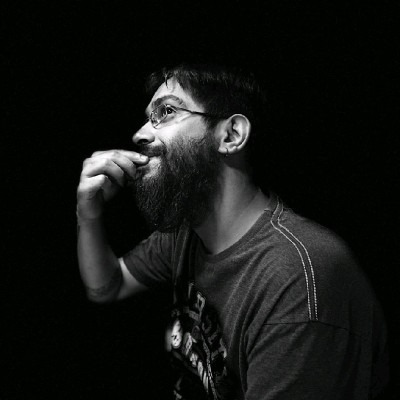

[…] Director: Krishan Hooda […]